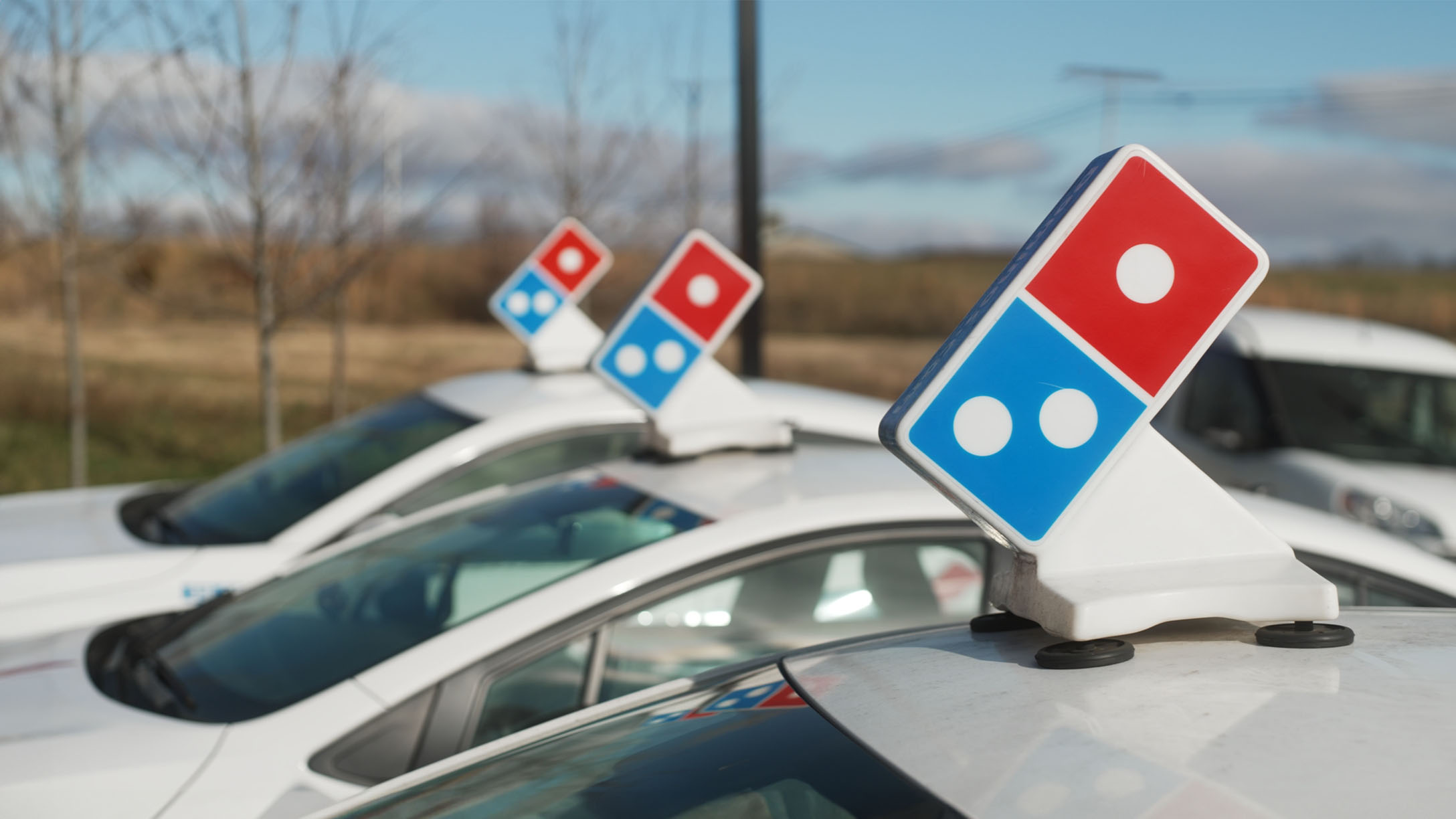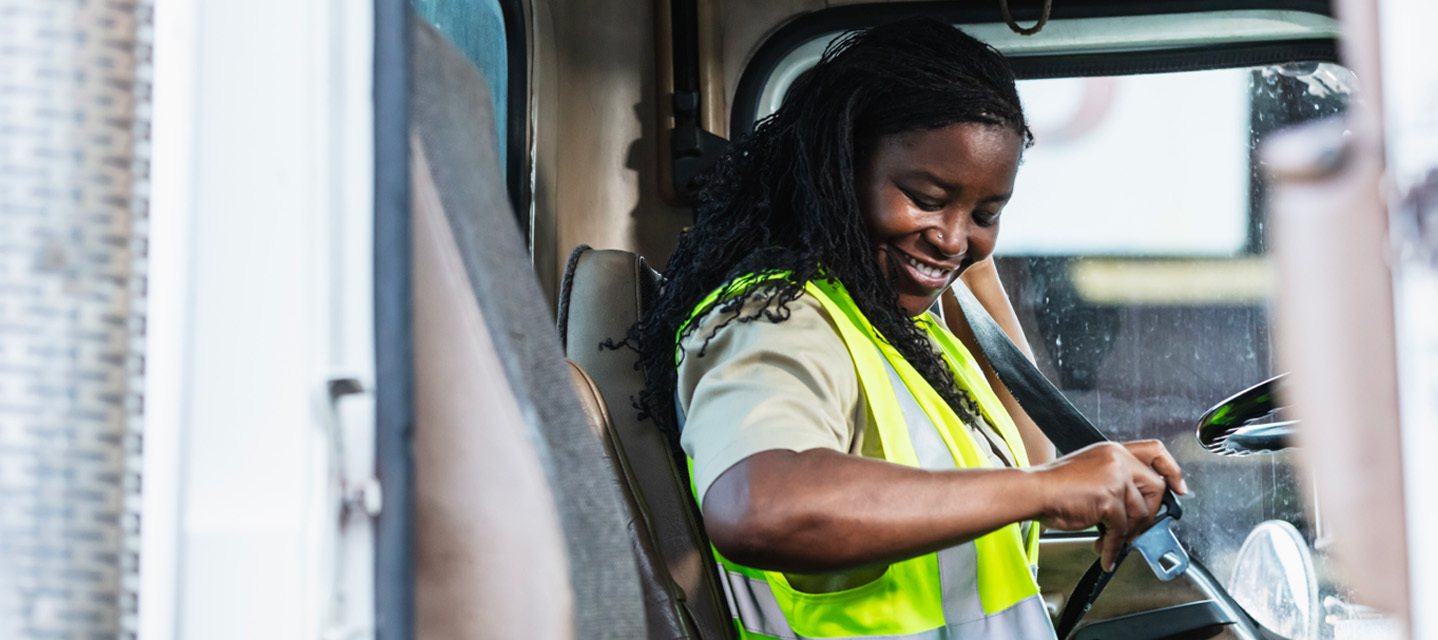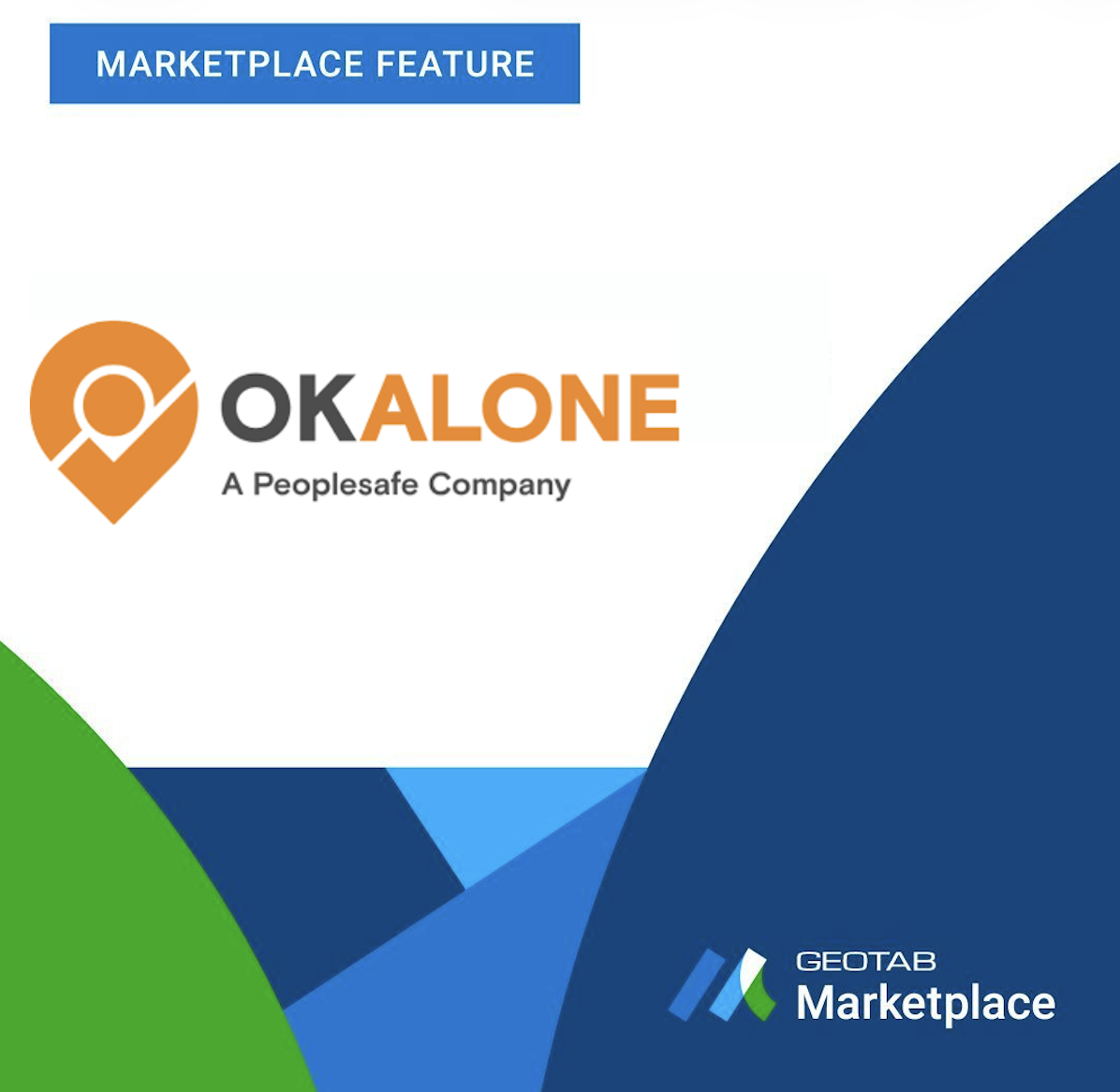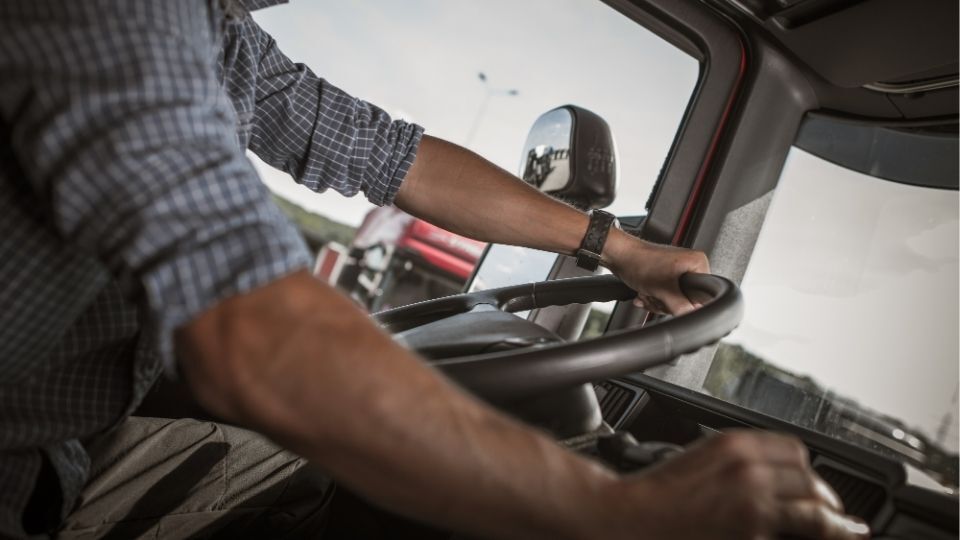How a Domino’s Pizza franchisee saves $100,000 per year
A Geotab-powered fleet and in-car cameras deliver on the promise to see more and save big.

Content Marketing Manager • Corporate Marketing
Feb 28, 2024

Chances are you never think about the logistics behind the pizza delivered to your door. Christian and Stephanie Reisch think about it a lot.
The Reisches operate 14 Domino’s Pizza stores in and around Lexington, KY under the business entity Team Goliath, Inc. For many years, Team Goliath reimbursed delivery staff for the mileage on their own cars. Knowing how prevalent mileage reimbursement lawsuits are in the United States, the Reisches opted to pay 35 cents per mile – a rate higher than the Motus-recommended 31 cents at the time.
Despite taking precautions, Team Goliath was served a $4.5 million class-action mileage reimbursement lawsuit. The Reisches ultimately settled out of court to avoid unnecessary disruption and cost. Then they decided there had to be a better way to protect their business in the future.
The Reisches chose to invest in a fleet of over 100 company cars supplied by Enterprise Fleet Management and equipped with Geotab technology. It turned out to be a savvy decision for their business.
Fueling safety by changing behaviors
Investing in a fleet of cars provided the opportunity to gain better oversight into driver behaviors. Team Goliath outfitted the fleet with Geotab GO devices and in-car cameras – a decision that paid off from the start.
The week after the switch to fleet cars for deliveries, telematics data showed many delivery drivers routinely speeding. The Resiches implemented a Geotab-powered driver scorecard to reinforce safe driving behaviors and identify drivers that might become a liability. The scorecard focuses on speeding and other common harsh-driving behaviors, including acceleration, cornering, and braking.
Delivery drivers are now expected to achieve a minimum of 80 on their scorecard every week. Anyone who doesn’t reach this threshold has a finite amount of time to bring their score up to an acceptable level. Drivers who fail to do so are no longer welcome to drive for Team Goliath. The same is true for any driver Geotab records going 25 MPH over the speed limit.
“When Geotab sends an alert Stephanie pulls the video and looks at Google Earth to find the speed limit signs on the street where the incident occurred,” says Christian. “Then she sends everything to the general manager before that driver even gets back from their delivery. When they arrive back at the store their manager is standing there waiting with their hand out to take the keys. It’s amazing!”
In the first year of driving fleet cars, this zero-tolerance policy weeded out a dozen reckless drivers. It also influenced other staff who saw there was a clear line in the sand around acceptable driving behaviors.
An example of in-car camera benefits in action
Forward- and rear-facing cameras help to protect Team Goliath drivers and fleet cars. Although the cameras can record sound, the Reisches opted to turn off that feature to respect the privacy of their staff. Anyone consistently scoring above 80 on their scorecard is rewarded with the added privacy of deactivated in-car cameras..
“We don’t check up on safe drivers,” says Stephanie. “I have drivers who have been with us the entire two-and-a-half years of the program and I’ve never seen them on camera behind the wheel of a car.”
Some of Team Goliath’s drivers were reluctant to have cameras in their cars at the start. They’ve since learned that having recorded evidence of incidents is invaluable. One driver’s experience clearly brings the benefits to life:
- The Team Goliath employee was driving through a residential neighborhood when he saw a child approaching on a bicycle. He was wearing his seatbelt and following the 25 MPH speed limit.
- The child was on the wrong side of the road and the driver could see that she wasn’t in complete control of her bike.
- The driver slowed down to a complete stop when it became apparent that the child might collide with his car.
- The child ended up falling off her bike behind his car. There was no indication that she had hit his car. Once the driver saw her get up on her own after the fall, he continued safely on his way.
Shortly after the incident, the child’s mother called the store claiming that the driver hit her child and fled the scene. She threatened his job and alluded to legal action. The Reisches quickly pulled the footage from the in-car camera and could see that their driver did everything perfectly. They burned the footage to a thumb drive and shared it with the police, along with the driver’s statement.
The police assured Team Goliath that bicycles and cars are subject to the same rules of the road. They had footage showing that the child on the bike was clearly on the wrong side of the road and out of control. There was no chance of charges being laid. Further, the child’s parents were on the hook to pay for any damages to the Domino’s Pizza vehicle.
“If somebody asserted that our delivery driver hit a child on a bicycle, we'd be tried in the court of public opinion,” says Christian. “The family could have filed a multimillion-dollar lawsuit against us. Thanks to Geotab and the camera technology we were 100% protected.”
Efficient insurance claims
Since installing in-car cameras Team Goliath’s delivery drivers have been in approximately 15 bad accidents. They were all initially listed as “at fault” on police reports. In 12 of those cases the video footage automatically captured by the cameras proved that the other driver was at fault. This allowed the Reisches to get their $1,000 deductible back quickly from their insurance company.
In the minority of cases where their drivers were at fault, the Reisches avoided wasting time and money on fruitless investigations. They paid the claims swiftly and moved on.
Having the in-car camera footage also helps with repair efficiency. Since insurance companies can see exactly where the vehicle was hit, they feel confident in the legitimacy of the damage they’re paying to repair.
Ordering up optimized delivery productivity
Team Goliath is currently working with Geotab’s experts to integrate telematics data with delivery data to optimize routes and driver workflows. Since Geotab is built on an open, configurable platform there are endless possibilities to customize features to the specific needs of Team Goliath.
Maximizing efficiency on high-volume nights promises to boost driver earning potential and streamline customer service. It will also add another item to the already-impressive return on investment (ROI) associated with switching to a fleet:
- Team Goliath’s non-owned auto policy cost plummeted from $120,000 to $10,000 per year.
- They’ve eliminated the issue of mileage theft.
- They estimate their cost per delivery mile is 20 cents lower than when they were reimbursing drivers for mileage.
- They were able to claim the $1.8 million paid for the fleet as a tax write off.
The safest delivery drivers on the road
With their Geotab-powered fleet in place, Christian and Stephanie will never again lose sleep wondering if they’ll be hit with a frivolous mileage reimbursement lawsuit. The Reiches are also confident that their drivers are the safest on the road – and the happiest.
“Our drivers love to know they’re doing a great job and Geotab helps us show them,” says Stephanie. “If we said we were going back to mileage reimbursement, I think everyone would quit. They love driving the company cars and they love the technology.”
To see how more real-life companies are using telematics to drive up safety and savings, check out our library of customer stories.
Subscribe to get industry tips and insights

Content Marketing Manager • Corporate Marketing
.
Table of Contents
Subscribe to get industry tips and insights
Related posts

Collision avoidance systems: How fleets prevent incidents and improve safety
December 23, 2025
5 minute read
.png)
From the North Pole to the Highway: How AI and Predictive Insights Get Drivers Home for the Holidays
December 16, 2025
2 minute read
.jpg)
.png)
AI dash cams vs. traditional: Which delivers better fleet safety?
December 8, 2025
5 minute read

Elevating Worker Safety Through Simplicity: The OK Alone Story
December 3, 2025
2 minute read

The $4B Crisis: Video Intelligence as the Answer to Fleet Distraction
December 2, 2025
3 minute read